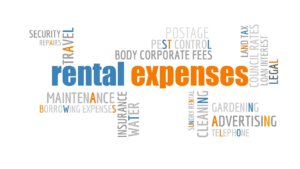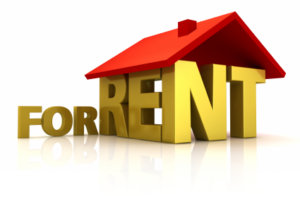
One of the most common questions we are asked by landlords is what are the allowable costs that can be offset against their rental income. It shouldn’t be a complex area but, as with many tax matters, there are grey areas and complicated terms to get to grips with. For example, it’s easy to misunderstand the difference between a CAPITAL expense and a REVENUE expense or confuse a repair with an improvement. So, we’ve written this guide for you to clarify the key areas of misunderstanding and help you to understand which expenses can be offset against income.
Be careful, not everything is an expense!
Common thinking among landlords is that, because you have spent money on your property, it automatically follows that you can offset it against your rental income. However, beware of this thinking as:
- Some expenditure never qualifies for any tax relief
- Some expenditure is only allowable against the gain when you sell the property
- Some expenditure may be deducted from rental income in calculating taxable income
- Some expenditure may not be claimed as a deduction but is subject to special rules
Generally speaking, and subject to certain other rules, expenses that are REVENUE in nature can be offset against rental income, whereas expenses that are CAPITAL in nature will be offset against the proceeds of a future disposal
Revenue expenses when leasing your property.
To be tax deductible against your rental income the expense must be revenue in nature and incurred wholly and exclusively for the purpose of renting the property. Below are some examples of expenses that may be tax deductible:

Repairs and maintenance
Repair work carried out on the property can be claimed, so long as it is not a capital improvement.
Also, it’s worth knowing that, if you lived in the property prior to letting it, then work carried out before the property is let is seen as maintenance of the property as a result of private use rather than for rental purposes, so cannot be claimed.
Legal, management and accountancy fees
You are not allowed to claim any legal fees in connection with the purchase of the property or its initial lease if it’s for more than one year. However, any legal fees in connection with the renewal of a lease, a short-hold tenancy of less than 1 year, eviction of clients and rent collection can be claimed, as can management fees and accountancy fees.
Services
If you pay service charges or charges for any other services in connection with the letting (e.g. electricity in common areas) then these can be claimed. And, if the property is a furnished holiday letting, then it is likely that you will pay for electricity, gas, water, television licence, telephone and other services.
Wages
Wages are an allowable expense; however, if you are employing someone then you will need to ensure that you meet all current employment legislation such as Working Time Directive, National Minimum Wage, Health and Safety and PAYE/NIC. The national living wage from 1st April 2017 is £7.50 per hour for employees aged over age 25.
Interest and other finance charges
Any interest accrued and any arrangement fees on a loan taken out to buy your property are claimable, but only if the loan does not exceed the capital value of the property. However, for residential properties the full amount is only allowed up until 5th April 2017. If it is a repayment mortgage, then it is only the interest element that can be claimed, not the total repayments. And, if you have a separate bank account for the property business, then any bank charges can also be claimed.
From 6th April 2017, tax relief on finance costs paid by landlords of residential properties will be restricted gradually (by 1/4 for each tax year) so that from 6th April 2020, finance costs will no longer be an allowable expense but will still attract tax relief at 20%.
Basic rate (20%) taxpayers should see no change to their liabilities and commercial properties and furnished holiday lettings will not be affected by the changes.

Insurance
Insurance premiums for the buildings and/or contents can be claimed.
Rent, rates and council tax
You may pay ground rent on your leasehold property. The tenant usually pays the rates or council tax but, if you do pay these costs or there are any void periods where you pay these costs, then these can be claimed.
Administration expenses
Examples of administration expenses that can be claimed include postage, stationery and telephone calls. Depending on how many properties you manage, you may also be able to claim the use of your home as an office. However, the rules for this changed in 2013 and either a complex calculation has to be made justifying the charge or the following can be claimed depending on the hours worked in an office:
Number of hours
worked per month Monthly claim
25 or more £10
51 or more £18
101 or more £26
However, it is unlikely that a charge for using your home as an office can be justified unless you are managing a number of properties yourself.
Other expenses
Any other expenses incurred wholly and exclusively for the purpose of renting the property can be claimed. The licence fee for Houses of Multiple Occupation (HMO) is claimable for example.
Replacement Furniture Relief
As of 6th April 2016, in the instance where a residential property is not a Furnished Holiday Let or no Rent a Room relief is claimed, then the expenditure on replacing items of furniture and white goods will be allowed as a revenue expense less any proceeds on the disposal of the item being replaced, provided that it is a like for like replacement.
The previous Wear and Tear allowance for fully furnished lettings was withdrawn after 5th April 2016.
Capital Expenditure
This is where the distinction between REVENUE expenditure and CAPITAL expenditure becomes important; however, this area is not black and white. For example, if you buy a property and simply redecorate it before you let it out, this will be considered to be revenue expenditure. However, if you bought a property for a significantly lower price than normal because it was in a poor condition and then carried out substantial works, then this expenditure would probably be considered as capital expenditure.
Most CAPITAL expenditure is eligible for relief for Capital Gains Tax purposes when you come to sell the property, so it is important that you keep records and receipts for the expenditure incurred.
Expenses when purchasing your property
Unfortunately, all costs and expenses associated with the purchase of your property are treated as part of the purchase price and cannot be offset against rental income for Income Tax purposes. These include:
- Purchase price
- Stamp duty
- Legal fees
- Building survey charges
- Independent inspection charges
- Auctioneer’s costs
However, it is important to keep a record of these costs as these can all be deducted from the gain (or added to the loss) when you sell the property and will reduce your CGT liability. Your solicitors’ completion statement should contain the majority of the costs within it for you as a starting point.
If your property purchase falls through, bear in mind that there is no tax relief for any of the costs that you have incurred.
Private Use
If you use the property for private purposes, which is most likely if it is a furnished holiday letting or you are not claiming Rent a Room relief in your own home, then any expenditure claimed must be restricted for its private use.
If you have previously occupied a property, then any expenditure relating to that period of occupation cannot be claimed. So any maintenance of the property prior to the first letting is private.
In Summary
The difference between Revenue and Capital expenses and, indeed, which expense qualifies in each, can be a grey area and we recommend that you seek professional advice on calculating your allowable expenses; however, there are opportunities for reducing both your Income Tax and your Capital Gains Tax with careful record keeping. Therefore, you should keep a record of all costs, together with the supporting receipts, so that you can claim Capital Gains Tax relief for the expenditure when you sell.
If you wish to speak to one of our experienced tax team members, then please do not hesitate to contact us.

